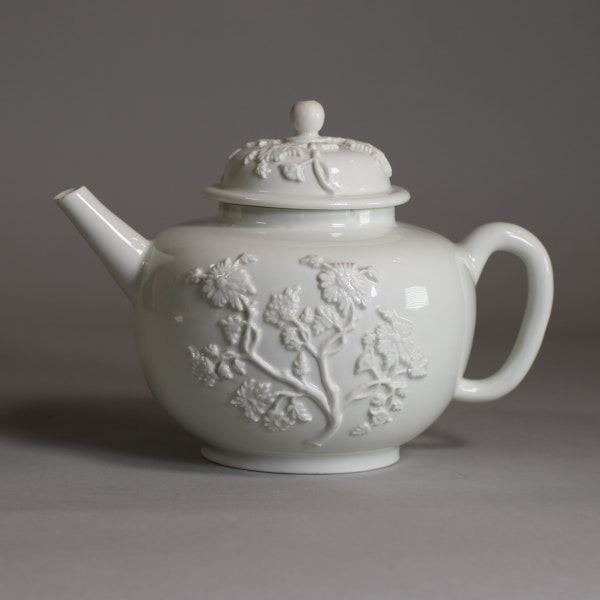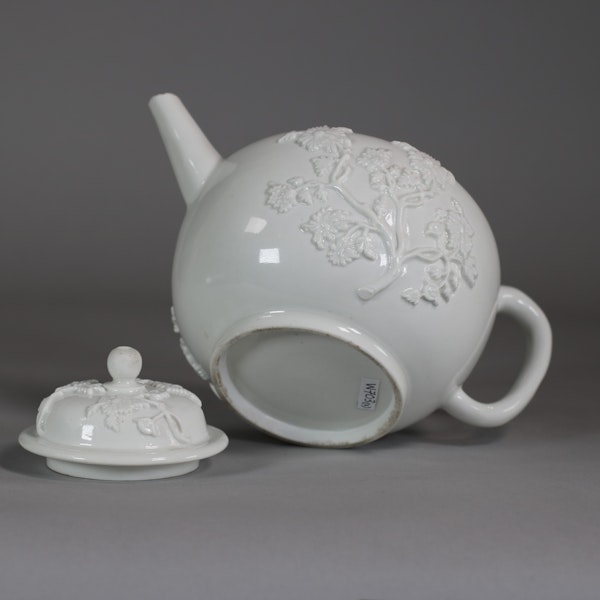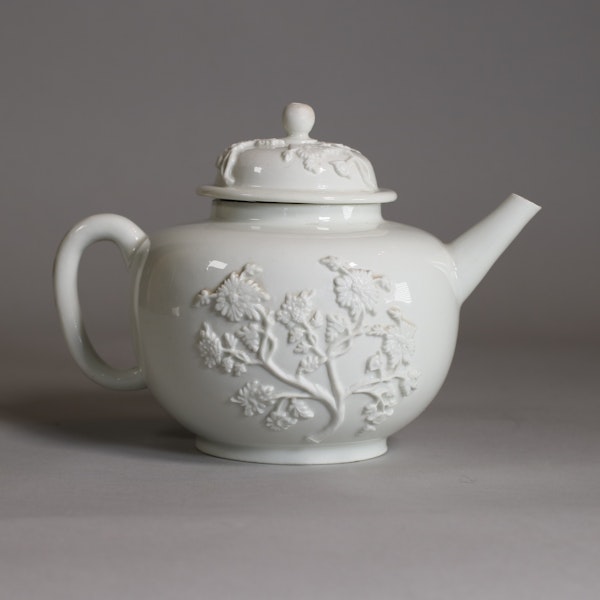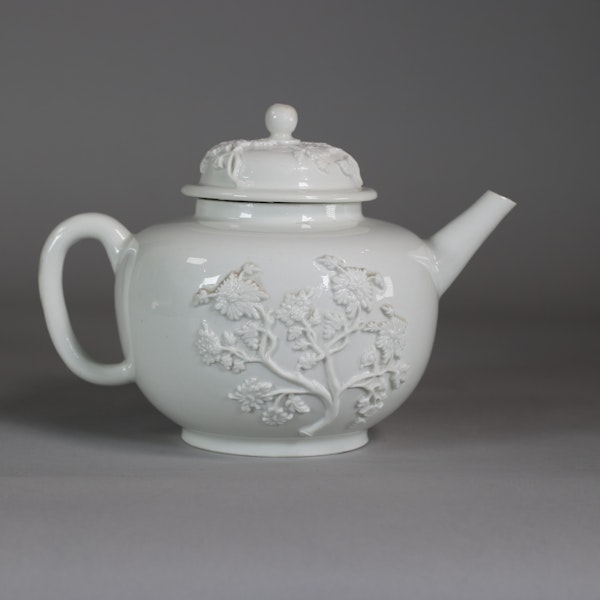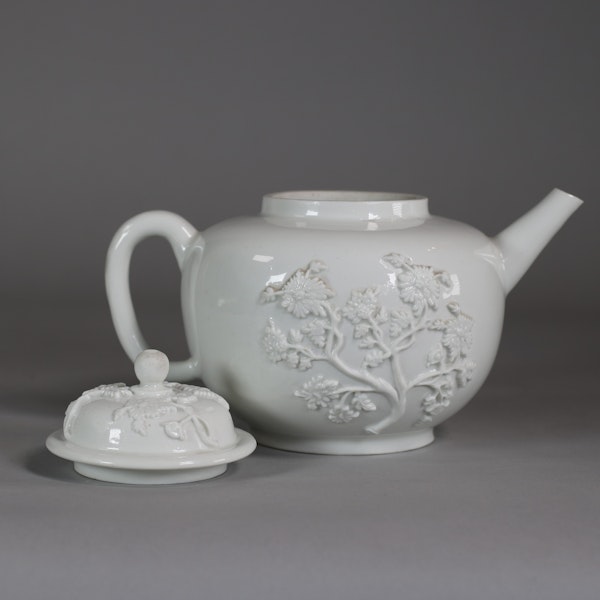Meissen Böttger white teapot and cover, circa 1715
Meissen Böttger white teapot and cover, circa 1715
POA
Description
Meissen Böttger white teapot and cover, circa 1715, with short conical spout and loop handle, the globular body decorated with ‘Irmingersche Belege’ applied flowering chrysanthemum and foliage in crisply moulded relief on either side, with a low domed cover surmounted by a pierced knop finial and with further applied moulded chrysanthemum decoration.
Height: 12cm. (4 1/4in.)
Condition:
Tiny frits to spout and very tiny and difficult to see hair-crack to teapot approx 4mm
Notes:
This teapot dates from the period at Meissen during which Johann Jacob Irminger, a court goldsmith at Dresden, was acting as director of Böttger stoneware and porcelain (from around 1710, when the Meissen manufactory was established). The influence of metallurgy, as well as that of Yixing and Dehua Blanc de Chine models, is apparent in Meissen wares from this period, and many examples either of similar shape or with similar crisp ornamental relief decoration as this teapot can still be found in the remaining collection of Augustus the Strong at Dresden (see for example PE 2839 a, b). After the initial efforts of Ehrenfried Walther von Tschirnhaus and experimentation of Johann Friedrich Böttger, Meissen ceramic technology developed rapidly from the early red stoneware vessels to pieces with finer white bodies comparable to the Asian porcelains so sought after by Augustus in around 1713. However, at this early stage of production the science of enamel decoration had not yet been perfected and so relief decoration (or ‘Irminger encrustations’) based on the moulded floral designs of Dehua wares from Southern China proved a popular alternative. For an interesting comparison see a stoneware Böttger teapot of very similar design still in the collection at Dresden also made under the artistic directorship of Irminger. (PE 2441a, b).
| item details | |
|---|---|
| Material and Technique | Böttger porcelain |
| Origin | German |
| Period | 18th Century |
| Condition | Very good |
| Dimensions | Height: 12cm. (4 1/4in.) |
Product REF: W703
